This article was co-authored by Tara Coleman and by wikiHow staff writer, Megaera Lorenz, PhD. Tara Coleman is a Clinical Nutritionist who has a private practice in San Diego, California. With over 15 years of experience, Tara specializes in sports nutrition, body confidence, and immune system health and offers personalized nutrition, corporate wellness, and online learning courses. She received a BS in Biology from James Madison University and spent six years in the pharmaceutical industry as an analytical chemist before founding her practice. Tara has been featured on NBC, CBS, Fox, ESPN, and Dr. Oz The Good Life as well as in Forbes, Cosmopolitan, Self, and Runner’s World.
There are 11 references cited in this article, which can be found at the bottom of the page.
This article has been viewed 31,620 times.
Unrealistic beauty standards and unhealthy attitudes toward food and eating can contribute to the development of eating disorders, especially in young people. Fortunately, strong support from family and friends can do a lot to prevent these disorders before they start. Be a strong role model for your loved ones and encourage them to adopt healthy eating habits. You can also help them by working on building strong self-esteem and a positive body image.
Steps
Building Healthy Eating Habits
-
1Set a good example by eating well. If you live with or know someone who might be at risk for developing an eating disorder, you can help them by being a good role model. Eat regular, nutritious meals and choose healthy snacks when you get hungry between mealtimes.[1] Other good habits to demonstrate include:
- Eating a varied diet that includes lots of fruits and vegetables, whole grains, fiber, lean protein (such as poultry breast or fish), and healthy fats (like those found in seeds, nuts, and vegetable oils).
- Limiting sugary, processed, and greasy foods.
- Taking time to enjoy and celebrate your meals, especially with family and friends.
-
2Encourage your loved one to eat when they are hungry. Talk to them about how to listen to their body and recognize the signals that they are hungry or full. Discuss how being mindful when eating can help them meet their body’s needs and avoid over- or undereating.[2]
- Talk to them about paying attention to hunger cues (such as growling or an empty feeling in their stomach, twinges or pangs in the stomach, light-headedness, or irritability) and thirst cues (such as a dry mouth or throat, tiredness, or headache).
- Encourage them to eat slowly and think about what they are tasting, smelling, and feeling. Being tuned into these sensations can help them pick up on their body’s signals to either keep eating or stop eating.
Advertisement -
3Avoid making negative or shaming comments about food and eating. Help your loved ones maintain a healthy relationship with food and eating by focusing on the positive. Don’t make critical or judgmental comments about what others are eating, and also avoid talking negatively about your own eating habits.[3]
- For example, don’t say things like, “I feel so guilty about eating this cake!” or “You shouldn’t eat so many fries. You’ll start putting on weight.”
- Instead of focusing on taking away foods, focus on how you can add more good nutrition to your diet.[4]
- Try not to praise people for dieting or avoiding food. For example, avoid saying things like, “Suzie was so good at the deli today. I don’t know how she resisted that milkshake.”
- Instead, demonstrate that you enjoy good food and feel positively about eating. For example, “Oh, wow, aren’t these sandwiches amazing?” or “I was so hungry. I feel so much better after eating that delicious dinner.”
-
4Keep healthy foods around the house. If you’re concerned about the eating habits of someone you live with, make sure they have access to plenty of fresh, nutritious foods. Keep your fridge and cabinets stocked with lots of fruits, vegetables, and healthy snack options, such as yoghurt, nuts, or whole wheat crackers.
- Avoid keeping too much junk food around, such as candy, soda, and store-bought baked goods.
- Having a wide variety of food options available can help encourage your loved ones to eat when they are hungry.
- Stocking your house with balanced, nutritious foods rather than junk foods will help ensure that your family members make healthy choices and develop healthier snacking habits in the long run.
-
5Educate yourself and your family about how diet can affect your health. Take some time to learn about the benefits of eating healthy and the potential consequences of not eating well. Check out some books on nutrition from your library or get some information from your family doctor or a registered dietitian. Talk with your family about issues like:[5]
- The benefits of healthy eating. Discuss how eating enough and choosing healthy foods can improve your energy levels, mood, and long-term health.
- The negative effects of undereating. These can include emotional problems (such as depression and anxiety), difficulty concentrating, reduced energy, and a variety of physical symptoms (including premature aging of the skin, loss of bone density, and poor circulation).
- The risks of overeating. Binge eating and other forms of overeating may contribute to health problems such as cardiovascular disease, diabetes, high blood pressure, obesity, as well as psychological problems (such as depression, anxiety, or social isolation).[6]
Fostering Good Self-Esteem and Body Image
-
1Talk to your loved one about their strengths and achievements. People who have trouble separating their sense of self-worth from their physical appearance are at risk of developing eating disorders. Help them by highlighting things you appreciate about them other than their appearance and eating habits.[7]
- For example, you might say things like, “I love how funny and generous and hard-working you are!” or “I’m so proud of you for acing that test. All that studying is really paying off.”
- Show respect for and interest in them as a person by listening actively when they talk to you. Discuss their goals, dreams, and fears in an open and non-judgmental way.
-
2Discuss healthy ways to cope with stress and negative feelings. People who are stressed, depressed, or anxious may react by eating too much or too little. Talk to your loved one about healthier ways to deal with these feelings, such as practicing mindful meditation and other stress-reducing techniques.[8]
- Remind them that eating well is an important part of self-care, and that good eating habits can ultimately make their stress more manageable.
- Encourage them to talk to a friend, family member, or counselor about what they are going through.
-
3Practice positive talk about people’s bodies. It’s important to start fostering body positivity from an early age. Talk about seeing the beauty in people of all shapes, sizes, and colors. Avoid speaking negatively about anyone’s physical appearance or making jokes about how people look—including yourself.[9]
- For example, avoid saying things like, “Ugh, I hate my thighs,” or “Geoff has really let himself go.”
- Don’t make critical remarks about people participating in certain activities or wearing certain clothes because of their shape or size. For example, “Yikes, I’d never wear a bikini if I looked like that.”
- Focus instead on celebrating the diversity of people’s bodies and all the amazing things they can do. For example, show your loved one pictures of Olympic athletes from all the different sports, and point out that they come in every imaginable shape and size!
-
4Have a critical discussion about body image messages in the media. Kids grow up seeing and hearing all kinds of messages about the “ideal” body type, from TV, movies, magazines, and social media. Have a talk with your family member or loved one about how to view what they see with an analytical eye and filter out the negative or unrealistic messages about eating and beauty standards.[10]
- For example, you might say, “Actresses on magazine covers always look perfect, but did you know they do a lot of digital retouching on those pictures? Let’s try to find a picture of what she really looks like.”
- You could also talk about how beauty standards differ throughout history and across cultures.
Understanding the Risk Factors
-
1Check for a family history of eating disorders. If you’re concerned that someone you know might be at risk of developing an eating disorder, try to find out if anyone else in the family has dealt with one. While it’s not clear what part genetics play in the development of eating disorders, the evidence does support a hereditary element.[11]
- People who have parents or siblings with eating disorders may be at higher risk than people with no family history.[12]
-
2Watch out for depression, low self-esteem, and other psychological risk factors. Consider whether the person you are concerned about has any mental or emotional health issues, behaviors, or personality traits that might put them at risk. Psychological risk factors for developing an eating disorder include:[13]
- Poor self-esteem
- Obsessive-compulsive disorder[14]
- Depression or anxiety
- Fixation on body image or a tendency to link body image with self-worth
- Social avoidance or isolation
- High sensitivity to criticism from others
- A history of trauma or abuse
-
3Be aware of social pressures from the media and peers. Children and teenagers are vulnerable to outside influences on how they perceive themselves. Think about the kinds of messages your loved one is receiving from the media, friends, and even mentors (such as sports coaches). Talk to them to make sure they are aware of these messages and know how to examine them critically instead of simply internalizing them. It’s especially important to have these conversations with them if they are dealing with pressures such as:[15]
- Teasing or bullying from peers about their physical appearance
- Involvement in a sport or hobby that puts an emphasis on achieving and maintaining a particular body shape (e.g., gymnastics, dance, or modeling)
- Unhealthy messages about body image or dieting from peers or celebrities on social media
Expert Q&A
-
QuestionHow can I be less unhealthy in what I eat?
 Tara ColemanTara Coleman is a Clinical Nutritionist who has a private practice in San Diego, California. With over 15 years of experience, Tara specializes in sports nutrition, body confidence, and immune system health and offers personalized nutrition, corporate wellness, and online learning courses. She received a BS in Biology from James Madison University and spent six years in the pharmaceutical industry as an analytical chemist before founding her practice. Tara has been featured on NBC, CBS, Fox, ESPN, and Dr. Oz The Good Life as well as in Forbes, Cosmopolitan, Self, and Runner’s World.
Tara ColemanTara Coleman is a Clinical Nutritionist who has a private practice in San Diego, California. With over 15 years of experience, Tara specializes in sports nutrition, body confidence, and immune system health and offers personalized nutrition, corporate wellness, and online learning courses. She received a BS in Biology from James Madison University and spent six years in the pharmaceutical industry as an analytical chemist before founding her practice. Tara has been featured on NBC, CBS, Fox, ESPN, and Dr. Oz The Good Life as well as in Forbes, Cosmopolitan, Self, and Runner’s World.
Clinical Nutritionist Instead of focusing on restricting your diet, focus on what nutritious foods you can add to it. For example, maybe you can have an apple and peanut butter as a snack or add a serving of vegetables to your dinner. This is a good way to make diet changes a positive thing.
Instead of focusing on restricting your diet, focus on what nutritious foods you can add to it. For example, maybe you can have an apple and peanut butter as a snack or add a serving of vegetables to your dinner. This is a good way to make diet changes a positive thing.
References
- ↑ Tara Coleman. Clinical Nutritionist. Expert Interview. 22 October 2020.
- ↑ https://source.colostate.edu/understanding-your-hunger-cues/
- ↑ https://www.nationaleatingdisorders.org/learn/general-information/developing-positive-body-img
- ↑ Tara Coleman. Clinical Nutritionist. Expert Interview. 22 October 2020.
- ↑ https://www.mayoclinic.org/healthy-lifestyle/tween-and-teen-health/in-depth/teen-eating-disorders/art-20044635
- ↑ https://www.betterhealth.vic.gov.au/health/healthyliving/binge-eating-disorder
- ↑ https://www.nationaleatingdisorders.org/learn/general-information/developing-positive-body-img
- ↑ https://www.cdc.gov/violenceprevention/about/copingwith-stresstips.html
- ↑ https://www.beateatingdisorders.org.uk/get-information-and-support/support-someone-else/tips-for-supporting-somebody-with-an-eating-disorder/
- ↑ https://www.nationaleatingdisorders.org/learn/general-information/developing-positive-body-img
- ↑ https://nedc.com.au/eating-disorders/eating-disorders-explained/risk-and-protective-factors/
- ↑ https://www.nimh.nih.gov/health/topics/eating-disorders#part_2269
- ↑ hhttps://nedc.com.au/eating-disorders/eating-disorders-explained/risk-and-protective-factors/
- ↑ https://kidshealth.org/en/teens/eat-disorder.html
- ↑ https://nedc.com.au/eating-disorders/eating-disorders-explained/risk-and-protective-factors/
About This Article
One way to prevent eating disorders is to foster healthy eating habits. When you’re around family and friends, set a good example by eating well and enjoying your food. Encourage your loved ones to pay attention to their bodies’ cues and eat when they’re hungry. Don’t make negative or shaming comments about food and eating, even when you’re talking about your own eating habits. Fill your home with healthy foods so that you and your family will always have plenty of good options to choose from. Many eating disorders are rooted in negative self-image and low self-esteem, so make it a point to talk about others’ bodies and your own in positive ways. Encourage your loved ones to feel good about their strengths and achievements too, so they can separate their self-worth from their physical appearance. Read on for more expert advice, like how to recognize the risk factors for eating disorders.
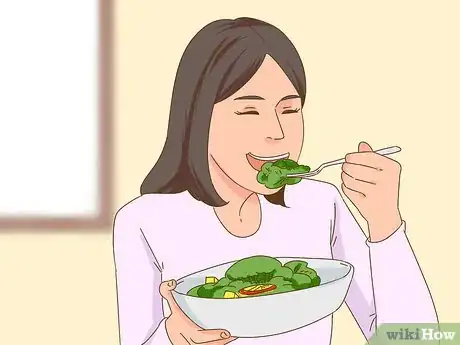




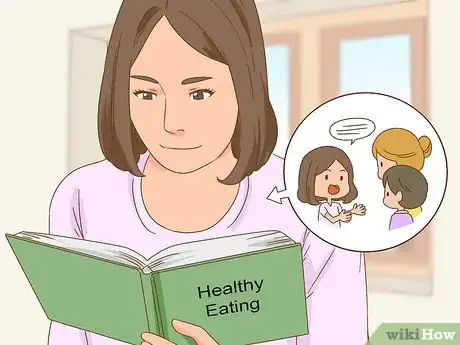

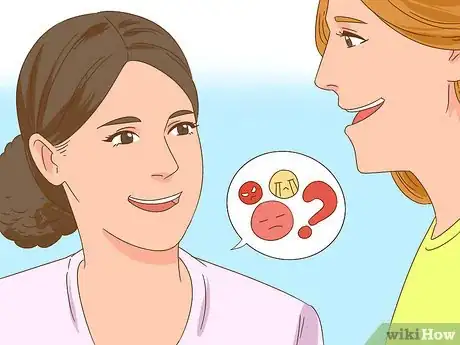




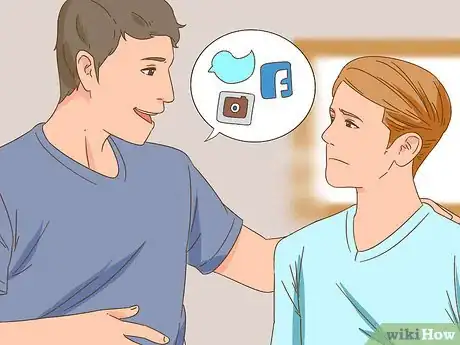








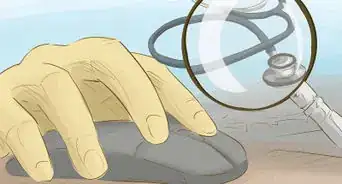


















































Medical Disclaimer
The content of this article is not intended to be a substitute for professional medical advice, examination, diagnosis, or treatment. You should always contact your doctor or other qualified healthcare professional before starting, changing, or stopping any kind of health treatment.
Read More...